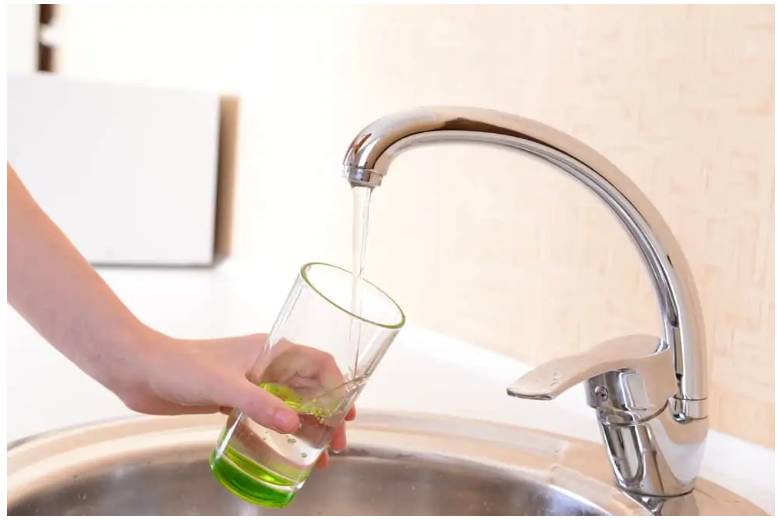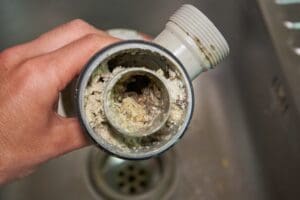How do you feel with regards to 9 Reasons for Low Water Pressure in Your House?

Low water stress in your house can be an aggravating problem, impacting whatever from bathing to washing dishes. If you're experiencing weak water flow, there are several possible reasons and options to discover. In this overview, we'll talk about common factors for low tide pressure and practical steps to deal with the problem successfully.
Intro to Low Tide Stress
Low tide stress occurs when the circulation of water from your taps, showers, and other fixtures is weaker than normal. This can make daily jobs extra tough and much less reliable. Understanding the reasons for low water pressure is vital to locating the best remedy.
Typical Reasons For Low Water Stress
Pipeline Obstructions
Over time, pipes can end up being obstructed with mineral deposits, sediment, or debris, limiting the flow of water. This is an usual issue in older homes with galvanized steel pipes.
Deterioration
Rust within pipes can result in leakages and reduced water stress. Rust build-up can restrict water circulation, particularly in aging plumbing systems.
Faulty Pressure Regulatory Authorities
Pressure regulators are responsible for preserving regular water pressure in your house. If they malfunction, it can cause low water pressure or irregular circulation throughout the house.
Local Supply Of Water Issues
Often, the trouble lies outside your home. Community water system concerns, such as main line leakages or upkeep work, can temporarily minimize water stress in your location.
Just How to Detect Low Tide Stress
Examining Taps and Components
Beginning by examining the water stress at various taps and components throughout your home. If the concern is separated to details locations, it may show local issues.
Evaluating Pipelines
Examine visible pipelines for indications of leaks, rust, or obstructions. Take notice of any type of uncommon sounds, such as banging or rattling pipes, which might suggest issues within the plumbing system.
Consulting with a Plumber
If you're not able to determine the root cause of low tide pressure, take into consideration working with an expert plumber to perform a thorough examination. They can recognize underlying problems and suggest suitable options.
Do It Yourself Solutions to Repair Low Tide Stress
Cleansing Aerators and Showerheads
Natural resources can collect in aerators and showerheads, lowering water circulation. Get rid of and cleanse these components consistently to enhance water stress.
Flushing Hot Water Heater
Debris buildup in the water heater can restrict flow and reduce effectiveness. Flushing the tank periodically helps remove debris and keep ideal performance.
Checking Stress Regulator
Ensure that the stress regulator is operating properly. Changing or replacing the regulatory authority can assist restore proper water stress throughout your home.
Clearing Up Clogs in Pipeline
For minor clogs, try making use of a plumbing snake or chemical drainpipe cleaner to clear blockages in pipes. Beware when making use of chemicals and follow safety and security guidelines.
When to Call an Expert Plumber
If do it yourself initiatives fall short to deal with the problem or if you believe significant plumbing problems, it's finest to look for help from a licensed plumber. They have the knowledge and tools to deal with complicated problems securely and effectively.
Preventive Measures to Keep Water Stress
Routine Maintenance
Schedule routine maintenance for your plumbing system to avoid problems such as deterioration, leakages, and obstructions. Addressing small problems early can help prevent even more significant repair services later.
Installing a Pressure Booster
Think about mounting a pressure booster pump to enhance water pressure in areas with constantly reduced circulation. This can be specifically helpful for multi-story homes or residential or commercial properties with high-demand fixtures.
Surveillance Water Usage
Bear in mind water use routines and prevent overtaxing the plumbing system. Basic modifications, such as staggering showers and laundry tons, can aid maintain appropriate water pressure.
Conclusion
Dealing with low water stress can be frustrating, but determining the underlying reasons and applying appropriate services can bring back ideal flow throughout your home. Whether it's cleaning aerators, checking pipes, or talking to a plumber, taking positive steps can make certain a constant supply of water for your day-to-day requirements.
FOUR WAYS TO FIX LOW WATER PRESSURE NOW
Turning on a shower or faucet only to find the water comes out in a sad, slow drizzle is never a good feeling. How exactly are you supposed to wash a pan or take a quick shower when it takes 10 minutes just to rinse off a little soap? The good news is that when your water pressure is bad, there's always a cause: typically one that can be easily fixed. Here are some of the most common causes of low pressure and what you can do to fix the issue:
DEBRIS AND MINERAL DEPOSIT BUILDUPS
If you notice low water pressure from just one or two of the fixtures in your house, the problem likely has to do with debris buildup. Water is full of minerals and other debris, all of which can accumulate in your pipes and on your fixtures. This can cause a blockage that affects how much water flows through. To fix this, try filling a small plastic bag with white vinegar, and use a rubber band to hang it around your showerhead or faucet. Let the head of the fixture soak for a few hours, and the vinegar should loosen the deposits.
WATER LEAKS
Leaks are another common cause of low water pressure. If water is flowing out of your plumbing through a hole or crack before it can reach your fixture, the pressure coming out of the faucet or showerhead will be lower. A plumbing professional is your best bet for finding and repairing a leak in your water supply pipes.
Leaks are another common cause of low water pressure. If water is flowing out of your plumbing through a hole or crack before it can reach your fixture, the pressure coming out of the faucet or showerhead will be lower. A plumbing professional is your best bet for finding and repairing a leak in your water supply pipes.
FOUR WAYS TO FIX LOW WATER PRESSURE NOW
Turning on a shower or faucet only to find the water comes out in a sad, slow drizzle is never a good feeling. How exactly are you supposed to wash a pan or take a quick shower when it takes 10 minutes just to rinse off a little soap? The good news is that when your water pressure is bad, there's always a cause: typically one that can be easily fixed. Here are some of the most common causes of low pressure and what you can do to fix the issue:
DEBRIS AND MINERAL DEPOSIT BUILDUPS
If you notice low water pressure from just one or two of the fixtures in your house, the problem likely has to do with debris buildup. Water is full of minerals and other debris, all of which can accumulate in your pipes and on your fixtures. This can cause a blockage that affects how much water flows through. To fix this, try filling a small plastic bag with white vinegar, and use a rubber band to hang it around your showerhead or faucet. Let the head of the fixture soak for a few hours, and the vinegar should loosen the deposits.
WATER LEAKS
Leaks are another common cause of low water pressure. If water is flowing out of your plumbing through a hole or crack before it can reach your fixture, the pressure coming out of the faucet or showerhead will be lower. A plumbing professional is your best bet for finding and repairing a leak in your water supply pipes.
Leaks are another common cause of low water pressure. If water is flowing out of your plumbing through a hole or crack before it can reach your fixture, the pressure coming out of the faucet or showerhead will be lower. A plumbing professional is your best bet for finding and repairing a leak in your water supply pipes.
A VALVE ISSUE
If you have low water pressure throughout your home, check your main shut-off valve to make sure it's completely open. You may also want to see if there's a pressure-reducing valve installed. If there is, have a plumber help you adjust the settings to get the pressure you're looking for.
OTHERS USING WATER
Believe it or not, your low water pressure could be caused by your neighbors. If you notice low pressure at certain times of day, it may be because you and the people living next to you have similar schedules - when everyone is showering at the same time, the pressure will be lower in every home. Low pressure throughout the neighborhood may also be caused by an issue with your municipal water supply. If that's the case, call the supplier to see if they're working on the issue.
https://www.rotorooter.com/blog/water-leaking/low-water-pressure-fixes/

I have been very interested in 10 Reasons for Low Water Pressure in Your House and I'm hoping you enjoyed our page. Sharing is good. You won't know, you might be doing someone a favor. Thanks for going through it.
Book